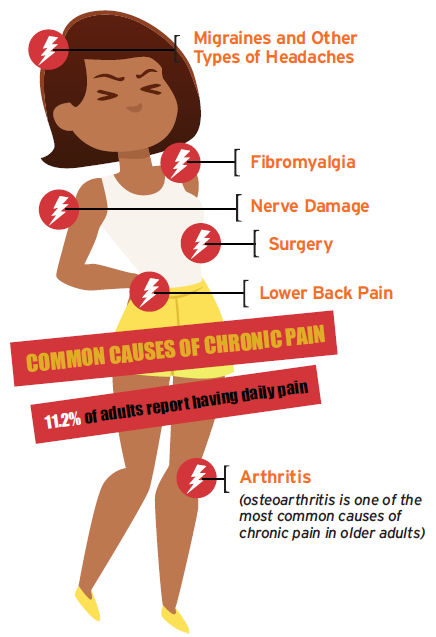Don't let chronic pain control your summer
July 28, 2022
Acute pain (pain that comes on suddenly and is usually severe) is actually your friend—it lets you know something is wrong. Chronic pain, however, persists, and sometimes for years. Chronic pain is debilitating and can interfere with daily activities and your psychological health. But thanks to Interventional Pain Management, pain doesn’t have to control your life anymore.
"For my patients, effective interventional pain management is about recovery of function, mobility, and quality of life,” says Pain Management Specialist Dr. Jonathan Grossman.
Typically, treating or managing chronic pain takes more than medication. It takes dedication and lifestyle changes. If you’re feeling persistent pain, here are a few things you can do before making a trip to the doctor.
 Move
Move
We know: You hurt. You don’t want to move. However, physical activity helps in several ways. Exercise builds strong muscles and bones. If you have joint pain, for example, building up muscles around the joint helps restore movement and lessens pain. Exercise also releases endorphins—feel-good hormones—so you can better cope with pain. If you are unsure of how to exercise safely on your own, consider physical or occupational therapy.
Relax
Meditation and other relaxation techniques help you better manage stress and reduce tension that can aggravate pain. In fact, relaxation can actually alter the chemicals in your brain that produce pain.
Stay engaged
Spending time with family and friends, and engaging in activities that bring you pleasure, can take your mind off pain and remind you of the positive aspects of life. Explore complementary health modalities. Medical literature provides some support that complementary approaches, such as acupuncture, massage and yoga, may be helpful in alleviating lower back and arthritis-related pain, and relaxation training and biofeedback may reduce pain associated with migraines and other chronic headaches.
Stop Smoking
Nicotine can make some pain medications less effective. Furthermore, smokers tend to have more pain than nonsmokers do.
Practice good self-care
Eat a healthy diet that includes plenty of fresh fruits, vegetables and whole grains, and limit sugar, saturated fats and alcohol. Maintain a healthy weight, and get plenty of sleep.
Pain pain go away
If your pain continues to persist despite making these lifestyle changes, it may be time to reach out to a medical professional. Schedule a visit with your primary care provider, or request an appointment with our Pain Management Specialist, Dr. Jonathan Grossman.
